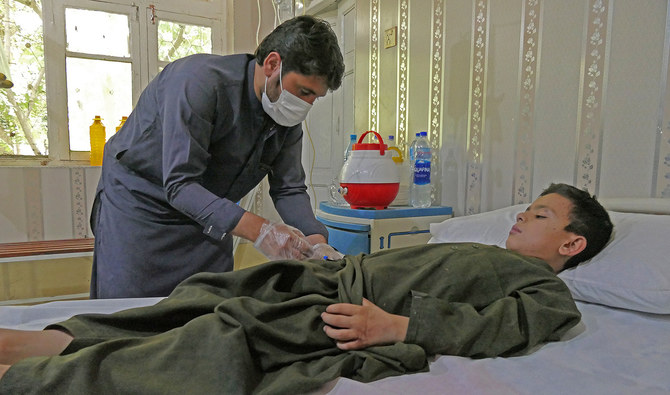- Web Desk
- Feb 24, 2026
Two new cases of Congo virus detected in Balochistan
-

- Web Desk
- Sep 06, 2024

QUETTA: Health authorities have confirmed two more cases of the Congo virus in Balochistan, bringing the total number of infections in the province this year to 26. The latest cases were reported from Quetta and Loralai, with both patients now receiving specialised treatment in isolation at the Fatima Jinnah Chest and TB Hospital, Express Tribune reported on Friday.
Today’s weather: partly cloudy with chance of rain, thunderstorms
The patients, identified as 55-year-old Abdul Hameed from Quetta and 60-year-old Khan Muhammad from Loralai, were transferred to the hospital following their diagnoses. Medical officials have raised concerns over the growing spread of the virus, which has already claimed five lives in 2024, the most recent of which occurred in Quetta on August 16.
With the rising number of infections, health professionals have urged the public to adopt precautionary measures to prevent further transmission. Dr Shireen Khan, a leading chest physician, emphasised the need for increased awareness regarding Crimean-Congo Haemorrhagic Fever (CCHF), commonly known as the Congo virus.
“This virus poses a serious risk to public health. It’s crucial that people take steps to protect themselves, such as avoiding direct contact with livestock, using insect repellent, and wearing protective clothing, particularly in rural areas,” Dr Khan advised.
She also highlighted the heightened risk to those working with animals, noting that the virus is predominantly spread by ticks found on livestock. “Early diagnosis and prompt isolation are vital to controlling the spread and ensuring the safety of the wider community,” she added.
In response to the escalating situation, the Balochistan health department has intensified efforts to control the outbreak. Officials are urging residents to remain vigilant, report any symptoms, and adhere to public health guidelines to minimise the risk.
Cricketers anxious over rigorous fitness tests, last-minute venue switch
The Congo virus is a tick-borne illness that can result in severe haemorrhagic fever in humans. It is typically transmitted through bites from infected ticks, particularly the Hyalomma species, or through direct contact with the blood or tissue of infected animals. The virus can also spread from person to person through contact with bodily fluids, posing a significant threat in healthcare settings.
First identified in Crimea in 1944 and later in Congo in 1956, CCHF has since become endemic in regions across Africa, Asia, Eastern Europe, and the Middle East, with countries such as Pakistan, Afghanistan, and Turkey regularly reporting outbreaks. The widespread presence of tick vectors means the virus poses a risk to large geographic areas.




